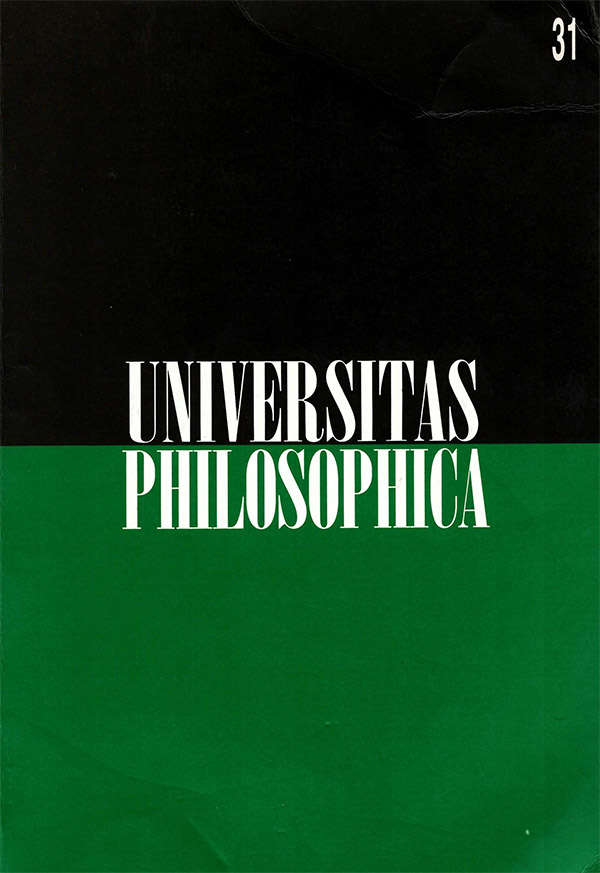Abstract
This paper explores the significance of Hume's moral viewpoint regarding the problem of the possibilities and conditions under which the other is recognized within plural societies. It proposes the following thesis: that the imaginativeconstruction of the other is the way to establish links of solidarity necessary to a tolerant way of living and the moral development of men and institutions. It is displayed in three moments. First it specifies tne context and character of Hume's moral inquiry. Secondly it approaches the operativa principie of the mind, simpathy, as the main source of moral distinctions. And lastly, it shows how simpathy, the imaginative figure in moral, constnicts, in a aesthetic and
reciprocal way, the other.
This journal is registered under a Creative Commons Attribution 4.0 International Public License. Thus, this work may be reproduced, distributed, and publicly shared in digital format, as long as the names of the authors and Pontificia Universidad Javeriana are acknowledged. Others are allowed to quote, adapt, transform, auto-archive, republish, and create based on this material, for any purpose (even commercial ones), provided the authorship is duly acknowledged, a link to the original work is provided, and it is specified if changes have been made. Pontificia Universidad Javeriana does not hold the rights of published works and the authors are solely responsible for the contents of their works; they keep the moral, intellectual, privacy, and publicity rights.
Approving the intervention of the work (review, copy-editing, translation, layout) and the following outreach, are granted through an use license and not through an assignment of rights. This means the journal and Pontificia Universidad Javeriana cannot be held responsible for any ethical malpractice by the authors. As a consequence of the protection granted by the use license, the journal is not required to publish recantations or modify information already published, unless the errata stems from the editorial management process. Publishing contents in this journal does not generate royalties for contributors.


